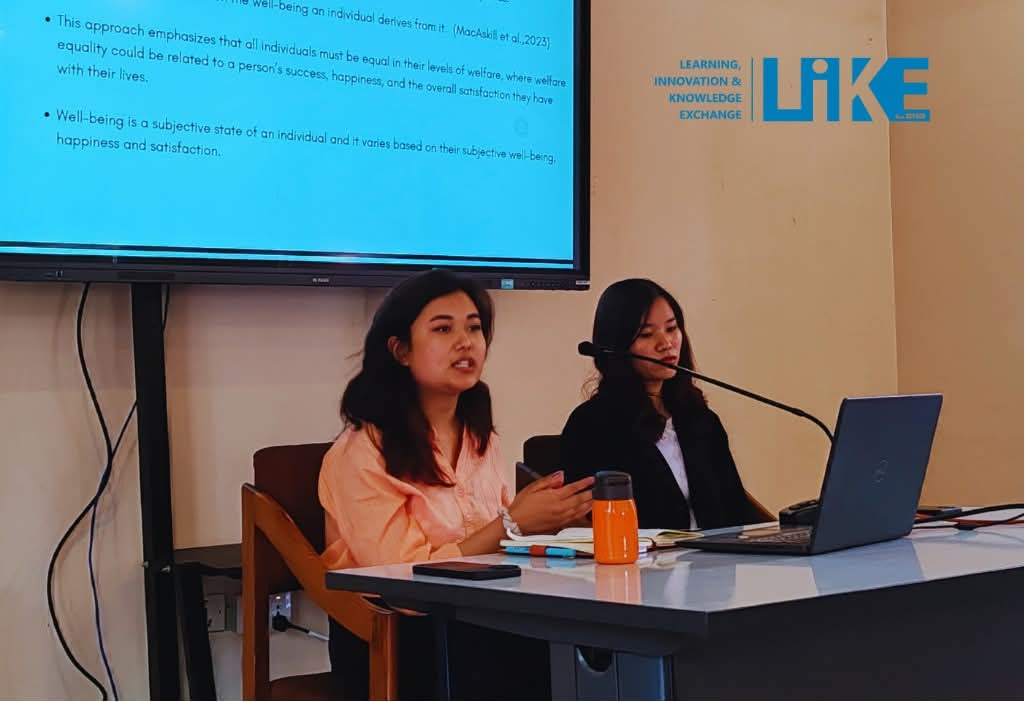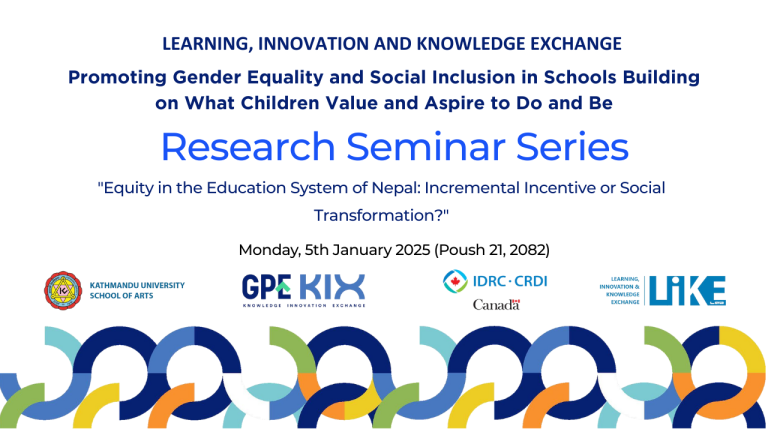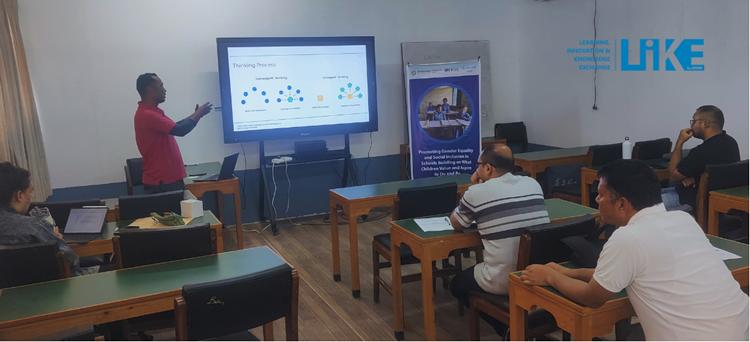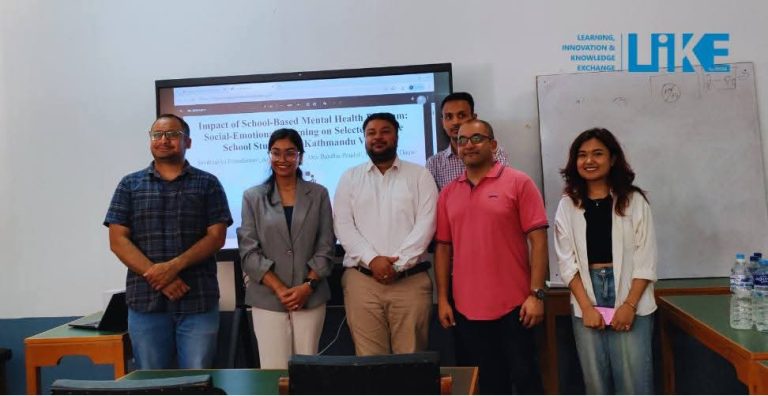
KATHMANDU, NEPAL, MARCH 23rd, 2025 – The Learning, Innovation and Knowledge Exchange (LIKE) Lab, in collaboration with Martin Chautari, organized a research seminar focusing on the educational experiences and resource accessibility for students with disabilities in Nepal. The seminar, held at Martin Chautari’s premises in Thapathali, brought together 20 participants (13 male and 7 female) for critical discussions on disability rights, inclusive education, and policy-practice gaps.
Moderated by Ms. Birsana Shrestha, the event was part of Martin Chautari’s regular research seminar series, which provides a platform for fostering intellectual exchange on social science issues.
Research Presentations
- Ms. Barsha Manandhar, Research Intern at LIKE Lab, presented her study “Exploring the Adequacy and Satisfaction of Resources in Achieving Well-being for Students with Disabilities: A Case Study of Bhojpur District.”
- Ms. Narayani Chaudhary, Research Intern at LIKE Lab, followed with her paper on “An Analysis of the Policy and Practice Gaps Regarding the Availability of Resources for Students with Disabilities: A Case Study of Disability Schools in Bhojpur District.”
Key Highlights and Discussion
The presentations sparked an engaging dialogue on the current state of education and support systems for Children with Disabilities (CWDs). Key discussion points included:
- The Government of Nepal (GoN) recognizes 10 disability types and 4 severity levels (mild, moderate, severe, and profound), which determine the issuance of disability cards and access to financial support.
- While inclusive education is gaining attention in policy discourse, participants noted that effective curriculum adaptation, implementation and mainstreaming remain limited in practice.
- The presenters emphasized the importance of having Persons with Disabilities (PWDs) in teaching roles and called for widespread basic sign language proficiency to improve communication and inclusion.
- Referring to the United Nations Convention on the Rights of Persons with Disabilities (UNCRPD), participants discussed the shift from terms like “specially abled” to “Persons with Disabilities” to reflect a rights-based perspective aligned with the Sustainable Development Goals (SDGs) principle of “leave no one behind”.
- The presenters shared their field experiences, noting that there were no significant differences in responses from CWDs based on caste, ethnicity, or gender.
Way Forward
The seminar concluded with a call to strengthen inclusive education policies, ensure curriculum adaptation, and improve accessibility and representation for CWDs in Nepal’s education system. Participants emphasized the need for collaboration between government agencies, educators, and Organizations Working with Disabilities (OWDs) to create equitable learning environments.



